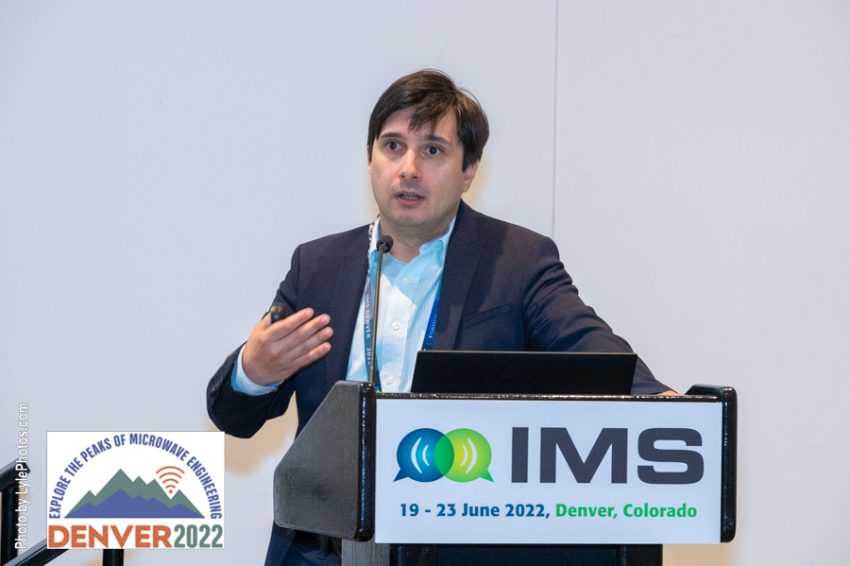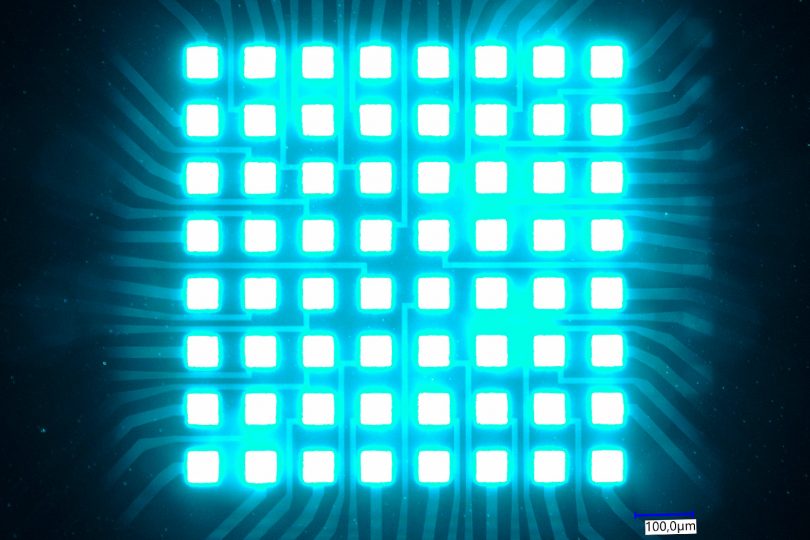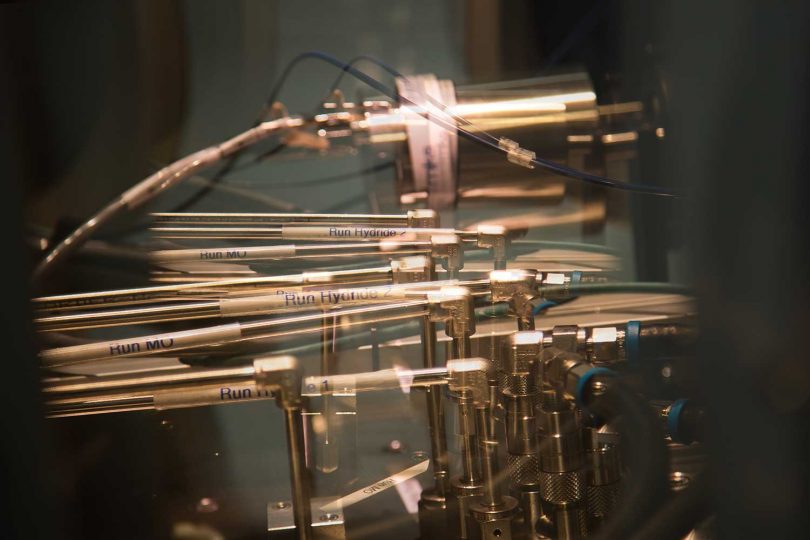Going for a microwave Adventure Vadim Issakov as Distinguished Microwave Lecturer 2023-2025
Professor Vadim Issakov has been awarded as Distinguished Microwave Lecturer. Also abbreviated as “DML”, the title belongs to the cosmos of the largest engineering network in the world. More specifically, the network branch “Microwave Theory and Techniques (MTT) Society” honours innovators in their field as DML so that they inspire local organisations, called chapters, with their lectures. For Vadim Issakov, head of the Institute of CMOS Design, this means above all: pack your bags! For the next three years he will be travelling the globe as an ambassador for TU Braunschweig.

Over the next three years, Professor Vadim Issakov’s time as DML will be piled up with international lectures like this one in Denver, Colorado. Picture credits: LylePhotos, Atlanta, USA
“I am both honoured and very excited about what awaits me in the next three years as Distinguished Microwave Lecturer,” says Professor Vadim Issakov about his award. With his research on millimetre-wave integrated circuits for radar applications, he has struck a chord with the Society, which brings together the high-frequency topics of the 400,000-member IEEE (Institute of Electrical and Electronics Engineers).
Microwave systems are indispensable in electrical measurement technology and thus also in the research focus of metrology. Of course, this does not mean the microwave in the tea kitchen (even though this certainly also plays an important role in everyday research). Microwaves make it possible to thoroughly analyse electrical networks and the electromagnetic spectrum. Especially in the high-frequency range, i.e. everything from ultrasound onwards, metrological research relies on microwaves. The MTT Society links research and development in this field across the globe. More than 10,000 members have joined together in 190 local chapters. Sounds small? Not really, because in this context a local chapter means Hawaii, Hong Kong or even Germany.
Around the world as DML
Every year, the MTT Society elects a handful Distinguished Microwave Lecturers. These DMLs are usually scientists with a topic that the Society would like to bring closer to its members over the next three years. The Distinguished Lecturers therefore not only enjoy the Society’s professional accolades but also a travel budget to reach even the most distant local chapter. These in turn request the lectures from the Society as highlights of conferences or meetings.
“The role as DML includes at least eight lectures, rather more, per year. In the meantime, all these lectures are to be held on-site again. So even with the best organisation, it takes quite a bit of travelling,” says Vadim Issakov. The length of the lecture is quite variable: anything between 30 and 180 minutes – depending on whether it should be more of an opener or more of a full lecture. The setting is as diverse as the audience.
“Former DMLs have told me about the most curious receptions: from the famous damp handshake to be received as state guests at the Indian chapter. The travel reports also sound somewhat adventurous. Meetings in the deepest provinces, accessible via very small airports with a meadow as a runway and hours of driving over canyon roads. Or seminars where soldiers escort the transfer from the airport to the hotel. Usually, you don’t cancel lectures. Only sometimes they become impossible: for example, when you are first invited to Pakistan and then want to go to the United States. You would just have to get a new passport in between.”
New international networks for quantum research
With his lecture “mm-Wave System and Circuit Design for Highly-Integrated Radar Transceivers”, Vadim Issakov not only sets impulses in the MTT Society, the chapters also stimulate research in Braunschweig. Vadim Issakov: “On the one hand, these kinds of circuits are very closely related to my topics in the Cluster of Excellence QuantumFrontiers. On the other hand, the quantum activities in our region, such as in the Quantum Valley Lower Saxony network, provide strong incentives for international cooperation. With the establishment of new networks, both our existing research projects benefit and at the same time they open up the space for completely new collaborations.


